The Roman Kingdom
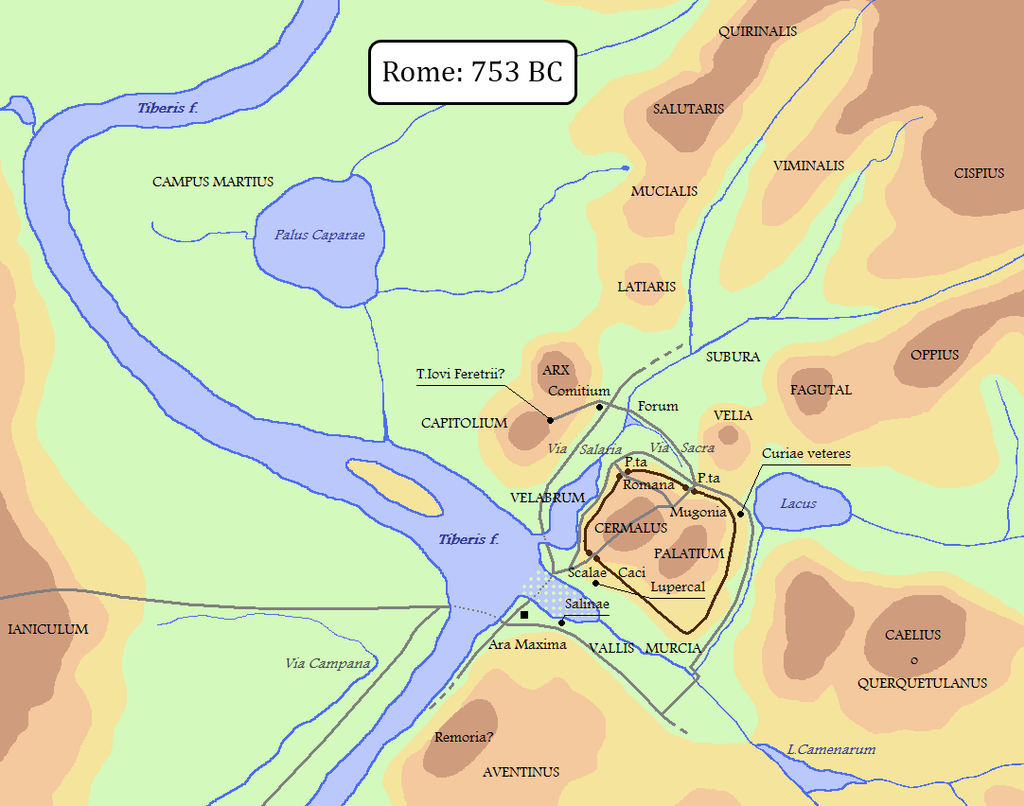
Intro
Rome is perhaps the most famous empire of all time. Before it was a famous empire, it was a Republic. Like most republics, or democracies, it was first a kingdom. The kingdom of Rome is not very well known. This is, in part, because its history is filled with legends, written long after the events of the kingdom. I want to give a simple understanding of Rome's seven kings that, supposedly, ruled during this time.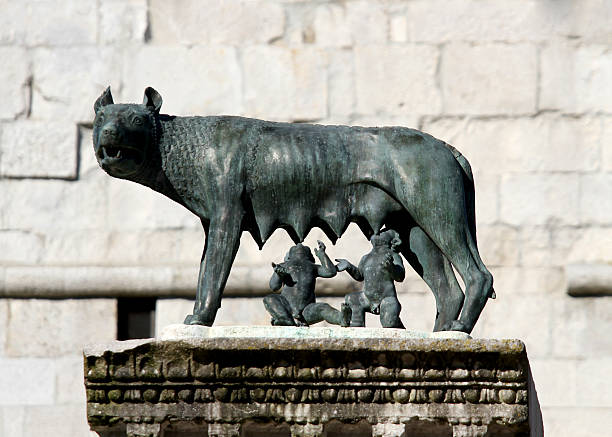
Story of Romulus and Remus
Before telling the stories of the kings, that were, almost certainly, fabricated in large ways, I want to give a quick synopsis of the founding of Rome. The story of Rome starts in a city, not that far from Rome, called Alba Longa. There was a king named Numitor, who was overthrown by his brother, Amulius. After overthrowing Numitor, Amulius locked him away, and sent his daughter off to be a vestal virgin, which would ensure the end of the bloodline, or so he thought. Numitor’s daughter, Rhea Silvia, became pregnant with twins. The almost certainly true legend (sarcasm), says that she was impregnated by the god of war Mars. Other stories claim it was Hercules. Further stories claim she may have been raped. Either way, she gave birth to twin brothers, Romulus and Remus.The fact that there was a potential rival, in the future, for the kingship of Alba Longa meant that the twins needed to be killed for the sake of Amulius keeping his crown. Thus, he ordered the twins to be killed. Throughout this tale, there are many different accounts of just about every detail, but the most widely accepted story says that the servant, that was sent to kill the twins, was over wrought with guilt and took pity on the boys. Instead, he sent them down the Tiber River in a basket. It was said that the Roman god of the river, Tiberinus, saved them by helping the basket land along a bank of a river.
The legends say a she-wolf then nursed the twins. Though, some have suggested that it was a prostitute instead of a wolf, but I digress. The wolf's name was Lupa, and she was helped by a woodpecker named Picus. Eventually, a shepherd, Faustulus, and his wife, Acca Larentia, took in Romulus and Remus to raise them. Sometime later, Romulus and Remus learned who they truly were and joined forces with Numitor to kill Amulius. The throne was offered to the brothers, but they refused and put Numitor back on the throne of Alba Longa. They then decided to set out to found their own city.
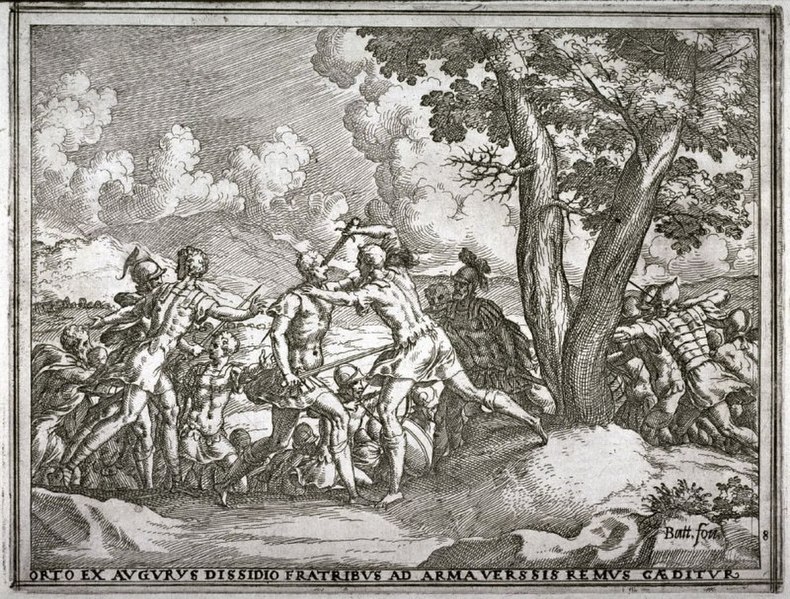
Who should be King?
Romulus wanted to build a city on the Palatine Hill, and Remus on the Aventine Hill. Again, there are many different versions of the legend. A common telling of the legend says that they came up with a way to see who the gods preferred. Which, of course, was by watching the birds, which was a common practice at the time. They sat upon their respective hills, and waited to see what the birds would do. Remus saw six birds first. However, Romulus later saw twelve birds. The question then becomes, who wins? The person that saw the birds first, or the one that saw the most birds. This great question sets off a feud between the brothers. Thus, they separated and started making their own cities. As Romulus demarcates his city with a wall, Remus berates Romulus, by jumping over the wall. Either one of Romulus' men or Romulus himself then kills his brother, Remus. With this, Rome was born through fratricide, with Romulus being the first king.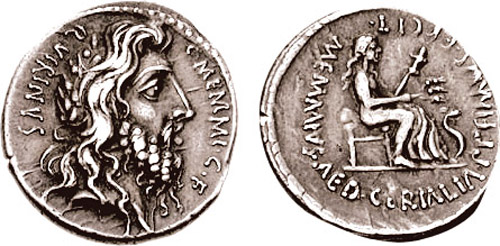
The First King: Romulus
Romulus then sets out to make Rome as he sees fit for a great city. This is all legend and myth, for the most part, so take it with a grain of salt. Romulus separates the citizenry into three tribes called Ramnes, Titienses, and Luceres. This was for military and tax purposes. He further separated the tribes into ten curias. Each curia is responsible for 100 soldiers, called a century, and 10 calvary. The 300 calvary would make up 'the swift,' or royal bodyguard. Romulus then selected 100 men from leading families to make up the senate. He called them patres or city fathers. Their descendants would be called patricians, which would make up one of the two different groups that make up Roman society. The other group being the common plebians or plebs. These actions didn’t help with Rome's first problem, though, which was the need for more people.
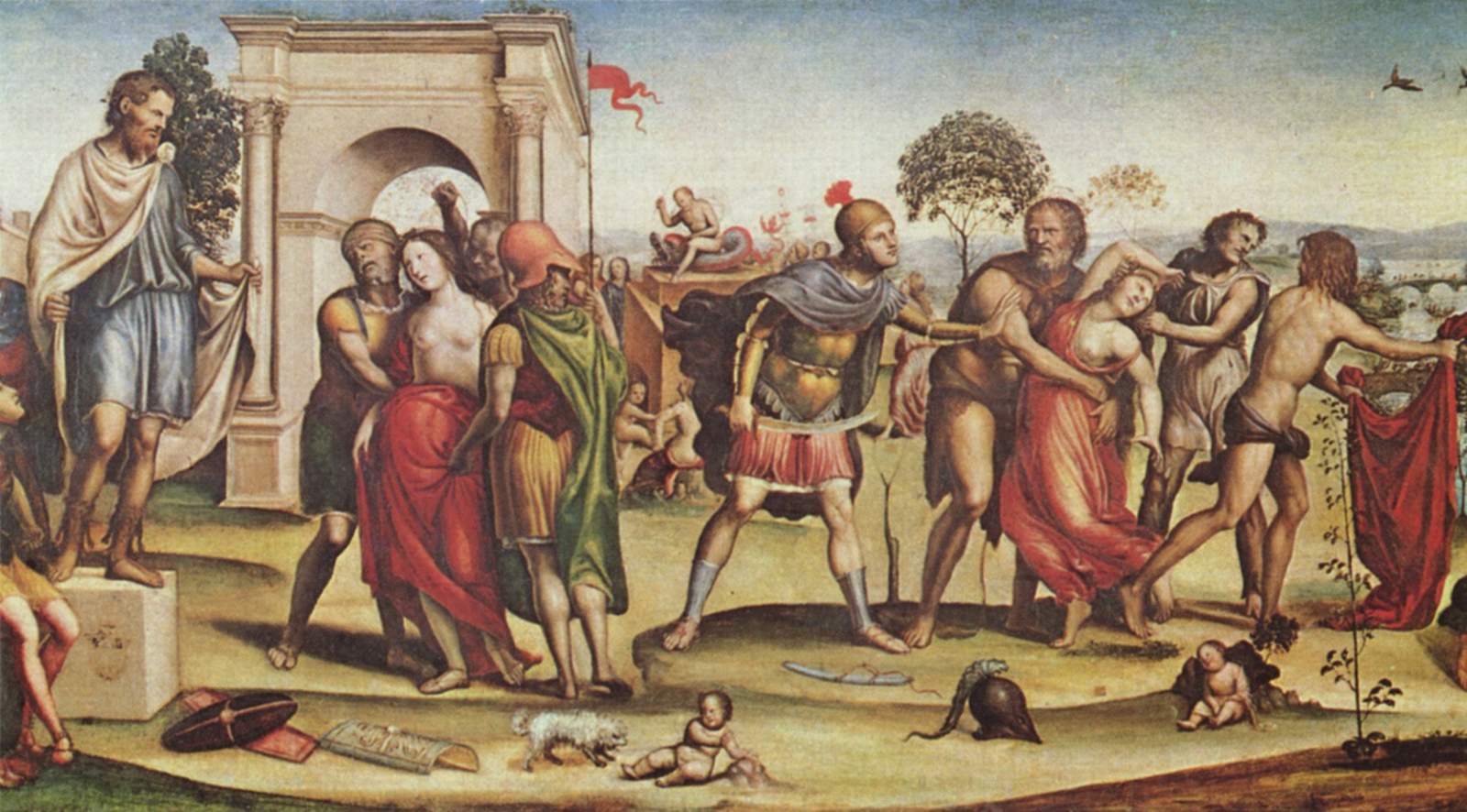
Rape of the Sabine
Rome had a population issue; it was too small to support a great city. The population problem was initially helped by making Rome a refuge for those that were banished from other cities. This did increase the population, but it meant the population was mainly men. Romulus then tried to ask different neighboring cities for the right to intermarry. They were rejected. Romulus than came up with a scheme. A Sabine city was invited to celebrate in a festival. During the festival, Romulus gave a signal and the men of Rome kidnapped the women of the Sabine city and ran away. Obviously, the Sabine people were not happy and declared war on Rome. However, during the intervening time, the Romans had married and impregnated many of the women. It is said, the women put themselves between the warring parties and asked for peace. Along with making infanticide illegal, what became known as the Rape of Sabine, helped Rome solve their population problem.The conclusion of the war was met with the idea of combining Rome with this Sabine city. Romulus would rule in conjunction with a Sabine, Titus Tatius. Titus would only rule for a short time in comparison to Romulus before he was killed off. Romulus ruled from 753bce, the founding of Rome, to 717bce. In 717bce, Romulus finally died. The legendary explanation for his death is as follows: there was a storm that came and took Romulus into the heavens. He then became a god, Quirinus. The less legendary explanation was that the senate decided to murder him in the hopes of retaining their own power.
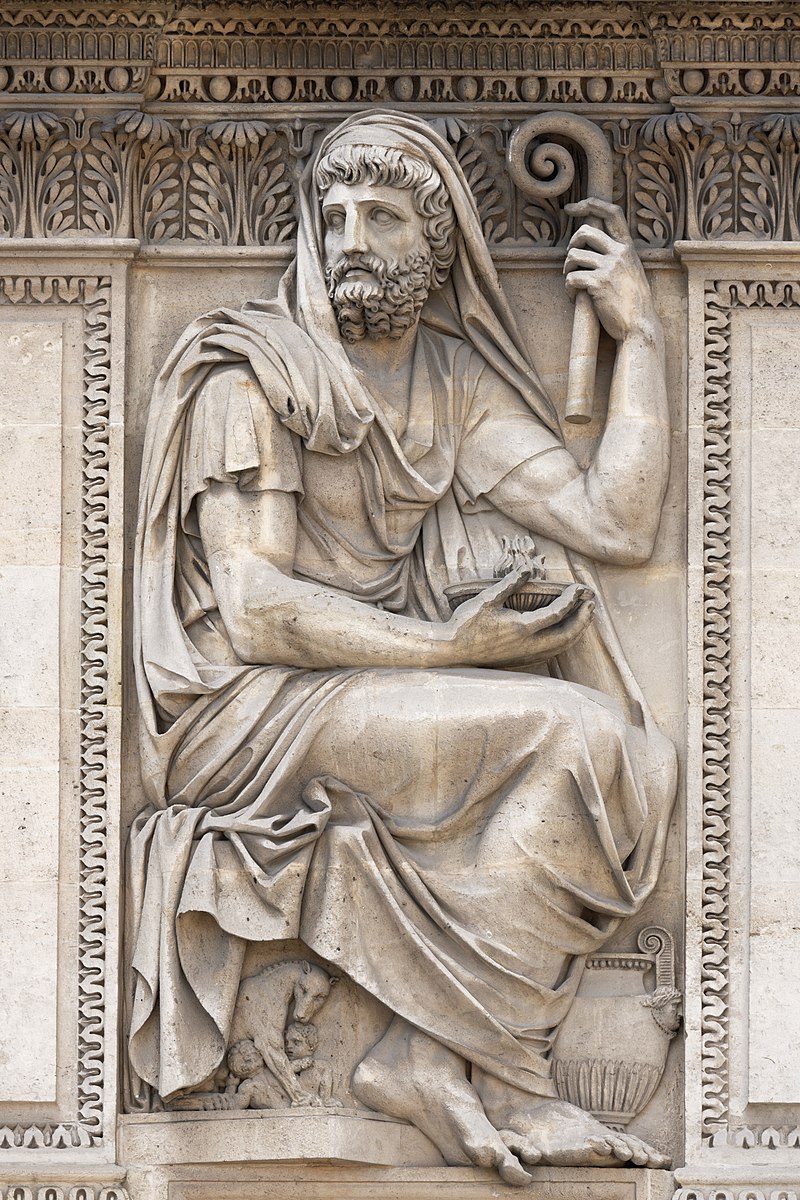
The Second King: Numa Pompilius
After Romulus’ death, there was an interregna period, when there was not a king. This period lasted for a year. The Roman people then decided to elect a Sabine as king. An interesting part of the Roman kingdom was that the kingship wasn’t hereditary, but rather elected. The Sabine that would replace Romulus was known as Numa Pompilius. Numa ruled between 716bce to 672bce.
A Pious Man
Numa was a religious man, who had retired to the countryside. In fact, at first, he rejected the kingship. It took his family and many senators to convince him to take on the kingship. Part of what convinced him was the idea that he, Numa, could help Rome become more peaceful. One of Numa’s ideas was to promote agriculture, given that a man with a hoe doesn’t have a hand for a weapon. He would go to different farms and promote farms that were doing well, and admonish those that were doing poorly. He also disbanded 'the swift,' or the royal guard. This may have also been to get rid of an armed group that may have been more loyal to Romulus than himself.Numa was also responsible for a few different innovations. He changed the calendar into a twelve-month calendar. This would create the months of January and February. He also brought the institution of the vestal virgins to Rome. Most importantly he is credited with the creation of the new office called the pontifex maximus. This new office was essentially for the high priest and would play a major role in Rome in years to come. For a religious leader, Numa, obviously, was involved in creating a few different temples. Probably one of the most famous temples he built was the Temple of Janus. Their doors would be closed during times of peace, and open during times of war. During Numa's kingship the doors remained closed.
After more than a 40-year reign, Numa died of old age. He left behind a legacy of peace and religious observance. He is rumored to have created a collection of books that detailed the proper way to observe the Roman religion. Though their veracity is questioned by historians.
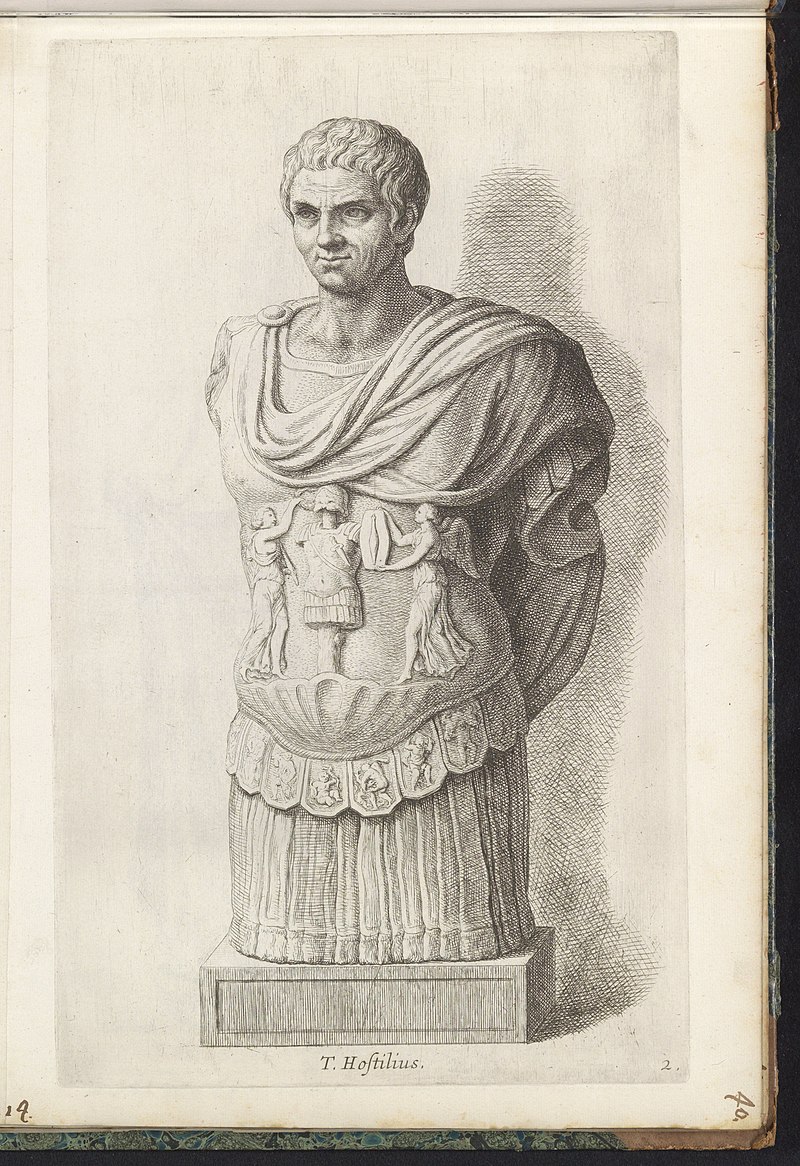
The Third King: Tullus Hostilius
After Numa, a war like king was elected. His name was Tullus Hostilius. He reigned between 672bce to 640bce. He has been considered a bit of a tyrant, who forgot the importance of the religious teachings brought about by Numa.
Man of War
One of Tullus’ great accomplishments was bringing Alba Longa, the mother city, into Rome. This was done by having two sets of triplets fight each other, with the Roman triplets declaring victory. He then preceded to destroy the great city. The population of Alba Longa was then incorporated into Rome. Some claim that this doubled the population of Rome. This was not the only conflict that Tullus was involved with. He also went to war with Fidenae and Veientines. As well as other Sabine tribes. To be fair, it was not all war that Tullius was famous for. He also created the Curia Hostilla, which was the original senate house.Tullus Hostilius’ lasting impact, though, was probably the way in which he died. It is said that he would not adhere to religious tradition. It was for this reason that Jupiter wielded lightening, killing him and burning his house to the ground. There is also another story that said he had a plague, and asked for help by Jupiter, to which the lightning bolt was Jupiter's response. Either way, it would teach the Roman's the importance of adhering to the gods and their teachings.
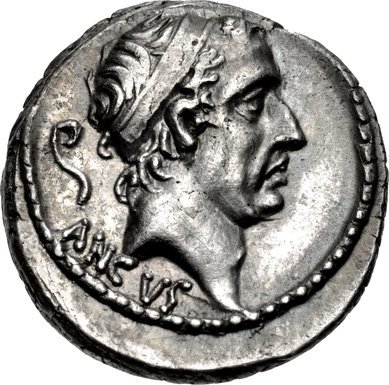
The Fourth King: Ancus Marcius
The next leader was understanding of these traditions, as he was, supposedly, the grandson of Numa Pompilius, Ancus Marcius. He reigned between 640bce to 616bce. Ancus was not the completely peaceful leader that Numa was, but did understand the importance of religion.
The Balancing Act
One of the first acts of Ancus was to have the pontifex maximus copy a commentary from Numa that described the performance of public ceremonies of the Roman religion. He then had the wooden tablets displayed for the public to view. This was so that the Romans would have the information for the religious rites, and to no longer be negligent or improperly perform these traditions.As said earlier, Ancus Marcius did commit war, as well. He went to war with different Latin cities, for one. He even created the rites of fetials, which would be used as an official way to declare war. He claimed that the war against the Latins was the first war declared properly. He would go on to have settlements from the Aventine Hill to Janiculum Hill.
Ancus is also credited with some important features of Rome. He supposedly built the first aqueduct, Aqua Marcia. The first bridge across the Tiber River was built during his reign, the Pons Sublicius. Though this is doubted by historians. The first Roman prison, Mamertine prison, was also built during his reign. Finally, he founded the port city of ostia.
Ancus died of natural causes, but his death would be the beginning of a particularly important turn of events for Rome. While heredity was not a determination of who would acquire the crown next, it was highly regarded. Ancus had two sons whom had the chance to gain the crown after Ancus' death. Before his death, Ancus had high regards for a member of his entourage, Lucius Tarquinius Priscus. Tarquinius Priscus sent the two living sons away from the city, shortly after Ancus' death in order to start a campaign for his own ascension to the crown. The Comitia Curiata, who elects the king, was convinced by this shrewd maneuver, and elected Tarquinius Priscus, or Tarquin the elder, as the 5th king of Rome.
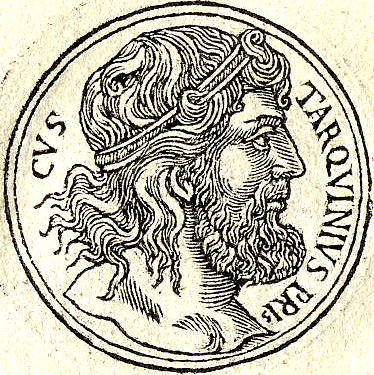
The Fifth King: Lucius Tarquinius Priscus
Tarquinius Priscus wasn’t Roman or Sabine, but instead was Etruscan. He was from an Etruscan city, where his wife, Tanaquil, convinced him to move to Rome and become king. After years of plotting, he became king and ruled from 616bce and 578bce. Many of the accomplishments between Tarquinius Priscus and the 7th king of Rome are confused and it is not obvious who accomplished what. I will give the, more or less, accepted understanding of some of their accomplishments in their respective sections.
A True Politician
The first thing Tarquinius Priscus did, as king, was to increase the senate by 100 more men, in hopes of getting more support from the Senate. He also, supposedly, built a few important structures and infrastructure. He built the Circus Maximus for chariot races and games. Also, the famous Cloaca Maxima, which was the sewer system, was also supposedly built during this time. Lastly, he was credited with building a wall around Rome, but like many things throughout this post, many historians doubt this as happening during his reign.Priscus was also involved with a few different wars, which expanded Rome's borders. The three groups he is most commonly associated with warring against were the Latins, Sabines, and Etruscans. Firstly, the Latins are supposedly at fault for starting the war with Rome. They, in turn, asked for help from the Sabine cities and Etruscan cities. The Latins were defeated, followed by cunning strategy to defeat the Sabines. Finally, Rome reigned supreme over the Etruscan cities involved. This all lead to a large expansion of Rome's borders.
Tarquinius Priscus is the first king whose legend acknowledges that it was an assassination that ended his reign. He was assassinated by a plot involving Ancus' sons. Disguised as a riot, Tarquinius was killed with an axe to the head. While many may have expected one of Ancus' sons or even Tarquinius' sons to become king, this is not what happened. Instead, Tanaquil, Tarquinius' wife, covered up Tarquinius' murder. She then declared a slave whom Tarquinius had adopted to be king.
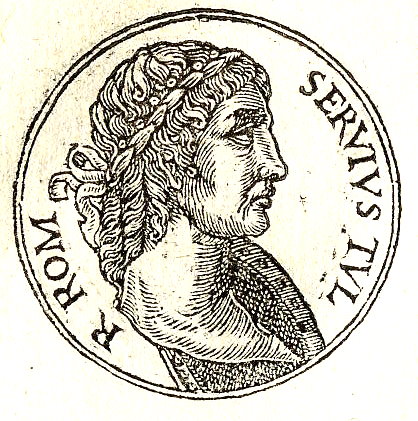
The Sixth King: Servius Tullius
The sixth king of Rome was Servius Tullius. He reigned from 578bce to 535bce. He was a beloved king of Rome. Essentially, a king for the average Roman. He is credited with a few changes to the very essence of Rome. It is not known whether he was Etruscan or Latin, sources tend to disagree with each other.
A Commoner’s Leader
Servius Tullius, supposedly, created Rome's first coinage system. Then, went on to expand voting availability. He realigned tribes and put more of a focus on economics, rather than bloodline. He also performed the first Roman censes, for tax and military purposes. Thus, making him the first censor. The construction of the Servian Wall, surrounding Rome, is also credited to him. He was able to expand Rome's borders encompassing Quirinal, Viminal, and Esquiline hills from the wars against the Etruscans and Veii. Finally, an important peace treaty was renewed between Rome and the Latin League.One would hope this would lead to a peaceful end to his great reign. This, however, was not the case. His own daughter lay responsible for conspiring with Lucius Tarquinius Superbus, Tarquinius Priscus' son or grandson, and murdering Servius. To add insult to injury, it is said she even ran over his dead body with a chariot. This set the stage for the tyrannical rule of Lucius Tarquinius Superbus or Tarquin the proud.
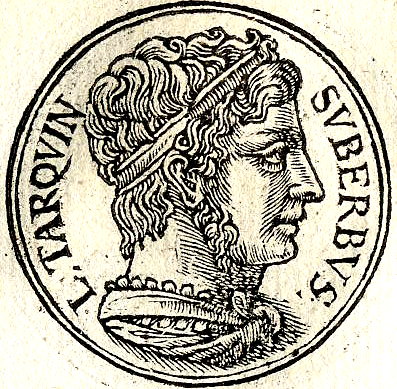
The Seventh King: Lucius Tarquinius Superbus
Tarquinius Superbus would be Rome's last king, before the age of the Roman Republic. He reigned from 534bce to 509bce. As stated before, it is unclear as to whether some of his accomplishments were those of the 5th king, but I will describe the usual attributes given to Tarquinius Superbus. He, like his father, or grandfather, was Etruscan. He started his reign through assassination, and was even said to have had refused to bury Servius. This started his reign with him seeming like a tyrant.
The Tyranny
To carry on his tyrannical rule, Tarquinius Superbus killed all the senators in favor of Servius and refused to replace them. This, in turn, shrank the number of senators. He then went from city to city in the Latin league looking for allies, and warring with those that didn’t comply. He also won a few wars with Sabine cities and renewed peace treaties with Etruscan cities. This all helped continue to expand Rome.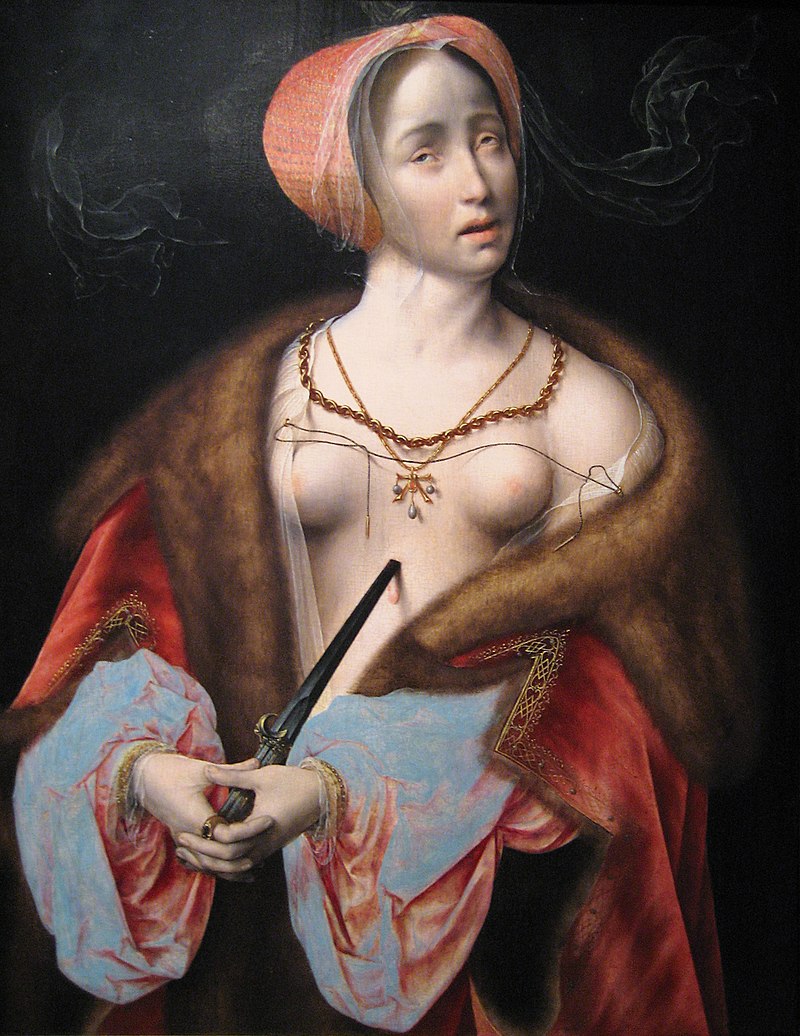
Tarquinius Superbus may not have gotten such the rotten reputation if it wasn’t for an incident involving his son Sextus Tarquinius. Sextus, as his name would imply, enjoyed the company of women. Perhaps a little too much, in fact. He fell in love with the appearance of a noble Roman woman named Lucretia. He tried to bed her, but she was having none of that. Instead, Sextus threatened Lucretia that he would claim she had committed adultery with a slave if she didn’t have sex with him. She relented and went to his bed. She then confessed to her husband and father. Even with their pleas, she decided the only way to reclaim honor for the family was to kill herself. This sent her husband, Lucius Tarquinius Collatinus, into a rage that would end with the dissolution of the monarchy. Tarquinius Superbus fled Rome rather than facing the consequences of his son’s actions. The senate, rather than replace Tarquinius with a new king, decided to replace him with two consuls: Lucius Junius Brutus and Collatinus. Thus, creating the Roman Republic.
